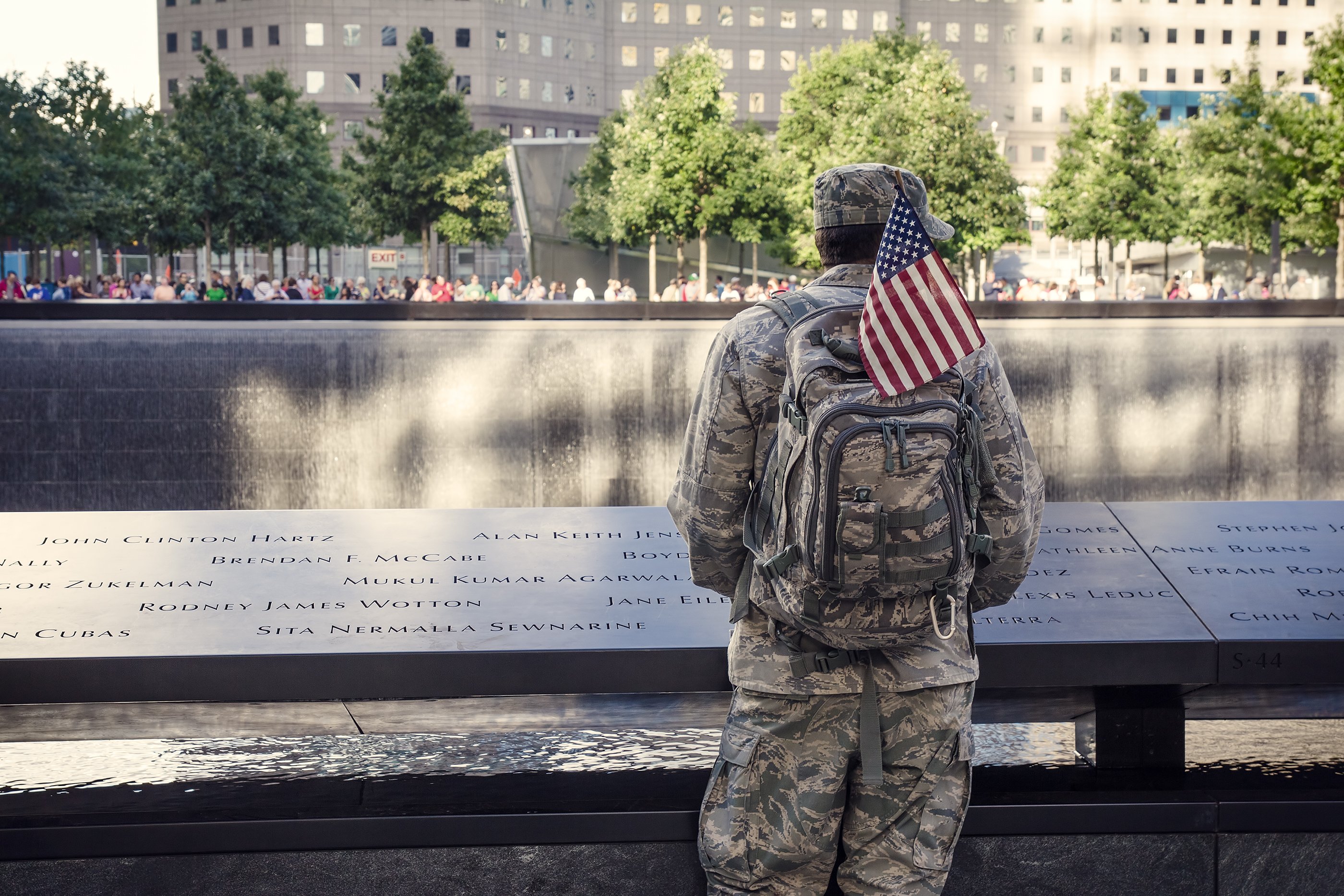
The twentieth anniversary of September 11, 2001, is this year, and although it is a sensitive topic to teach, coming together as a class to commemorate the event can lead to profound learning and impactful lessons in unity and empathy. Because September 11 is lived history, meaning that many educators today lived through the events and may have even lost family or friends to the tragedy, it requires immense consideration and responsibility to teach the topic to today’s youth.
Take Your Own Feelings and Thoughts into Consideration
On Tuesday, September 11, 2001, terrorists linked to al-Qaeda hijacked four passenger planes. Two were flown into the World Trade Center, one into the Pentagon, and a fourth crashed in a field in Pennsylvania after passengers tried to overpower the hijackers. The attacks resulted in the deaths of 2,997 and injuries to more than 6,000. Those of us who lived through September 11, 2001, which is likely the majority of teachers today, remember where we were when news broke, who told us, what we did that day, and how we felt. We understand that the impact of 9/11 goes far beyond the thousands of tragic deaths that occurred that day.
Personally, I remember the events of 9/11 so clearly: the tension as I stood in the drop-off line at my elementary school; the buzz among students, who didn’t fully know what was happening; teachers and staff making announcements throughout the day; my fifth-grade teacher turning on the news for us and watching that footage of the Twin Towers on repeat. These are images that will forever be engrained in my brain. But the real aftermath was how the world changed rapidly post 9/11: technology, homeland security, war, and news coverage of the Middle East for years. Take into account that no K–12 students were alive to understand how pivotal these events were, so beginning with a personal anecdote or story can be an impactful moment for the class as a whole. Attempt to utilize a compare-and-contrast activity for your students to grasp the ramifications of the events.

Photo: iStock by Getty Images
Be aware of how the topic might affect students
Schools and teachers struggle with how to teach 9/11 every year, and it can often have a profound negative effect on students who are Muslim or of Middle Eastern descent. According to the Conversation, the first week of September, when schools commemorate September 11, also sees an increase in religious-based bullying in schools, including both physical assaults and insults. To counteract this, ensure that all conversations and lesson plans that include the topic also include empathy and respect. Schools can implement antibullying and antidiscrimination campaigns that preemptively address instances of bullying that violate students with diverse religious beliefs or ethnic backgrounds. Be aware of family history as well. Did students have family members who died during the attack or went to war as a result? Do students have family members who are or were firefighters or police officers? In teaching any controversial or sensitive topic, addressing it with an awareness of how students may be triggered is key.
Utilize the September 11th Education Project
There are hundreds of lesson plans and resources to address teaching 9/11 in a sensitive and respectful way. One lesson plan that is appropriate for secondary students is the September 11th Education Program. Using essential questions to guide learning through a variety of viewpoints and perspectives about 9/11, students will develop an understanding of the meaning of heroism and apply that understanding to groups and individuals who played a role in responding to the 9/11 attacks. Students will also present their ideas to the class and make recommendations for how to honor those firefighters, police officers, and everyday citizens who displayed heroism. Other lessons in the project use primary source photographs, vocabulary, and close reading activities to deepen student understanding of September 11. You can learn more and download these activities here.

Photo: iStock by Getty Images
Weave current events into your lesson plan
The events of September 11, 2001, prompted a ripple effect across the United States and the globe. The United States established the Aviation and Transportation Security Act, which was passed by Congress and signed into law by president George W. Bush on November 19, 2001, creating the Transportation Security Administration. Originally part of the US Department of Transportation, in 2003 the TSA became part of the newly created Department of Homeland Security. This is one of the many acts passed by Congress to enhance the nation’s security while ensuring the freedom of movement for people and commerce. Tie these acts into current events by asking students to research other legislation that was passed in the wake of 9/11 and continue to be revisited today. Some research topics could include terrorism, homeland security, military spending, intelligence, technology, or similar.
The United States military pulled all troops out of Afghanistan on August 30, 2021, ending America’s war in the Middle East. The United States’ involvement in Afghanistan was directly triggered by attacks plotted by the al-Qaeda militant group and Osama bin Laden, who was in Afghanistan under Taliban protection. Connect these themes with your students through recent articles about the conflict in Afghanistan.
We recommend additional research through the following resources:
- The September 11th Education Program
- National 9/11 Memorial and Museum
- National Education Association
- Smithsonian National Museum of American History
- Morningside Center for Teaching Social Responsibility
Learn more about how the September 11th Project can enhance your classroom
Monet Hendricks is the blog editor and social media/meme connoisseur for Social Studies School Service. Passionate about the field of education, she earned her BA from the University of Southern California before deciding to go back to get her Master’s degree in Educational Psychology. She currently attends the graduate program at Azusa Pacific University pursuing her post-grad Educational Specialist degree in School Psychology and Applied Behavior Analysis. Her favorite activities include traveling, watching documentaries on mental health, and cooking adventurous vegetarian recipes.